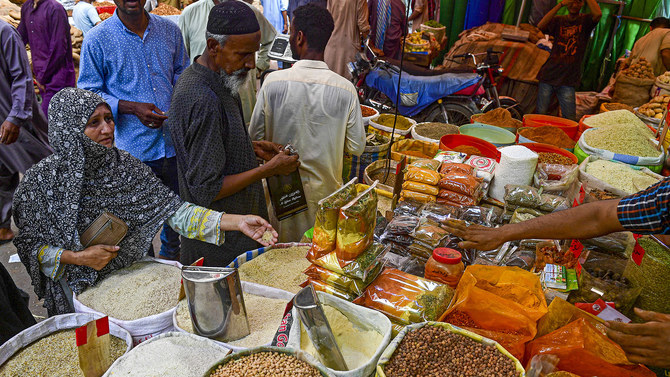KARACHI: Pakistan’s inflation rate clocked in at 31.4 percent year-on-year in September, rising from 27.4 percent in August, statistics bureau data showed on Monday, as the nation reels from high fuel and energy prices.
The country is embarking on a tricky path to economic recovery under a caretaker government after a $3 billion loan program approved by the International Monetary Fund in July averted a sovereign debt default, but with conditions that complicated efforts to rein in inflation.
On a month-on-month basis, inflation climbed 2 percent in September, compared to an increase of 1.7 percent in August
Reforms required by the IMF bailout, including an easing of import restrictions and a demand that subsidies be removed, have already fueled annual inflation, which rose to a record 38.0 percent in May.
Interest rates have also risen to their highest at 22 percent, and the rupee hit all-time lows in August before recovering in September to become the best performing currency following a clampdown by authorities on unregulated FX trade.
On Friday, the ministry of finance said in its monthly report that it anticipated inflation remaining high in the coming month, hovering around 29-31 percent due to an upward adjustment in energy tariffs and a major increase in fuel prices.
The report added that inflation was, however, expected to ease, especially from the second half of the current fiscal year that starts on Jan. 1.
On Saturday Pakistan cut petrol and diesel prices from a record high, after two consecutive hikes. The finance ministry cited international prices of petroleum products and the improvement in the exchange rate, following the clampdown on unregulated FX trade.


















